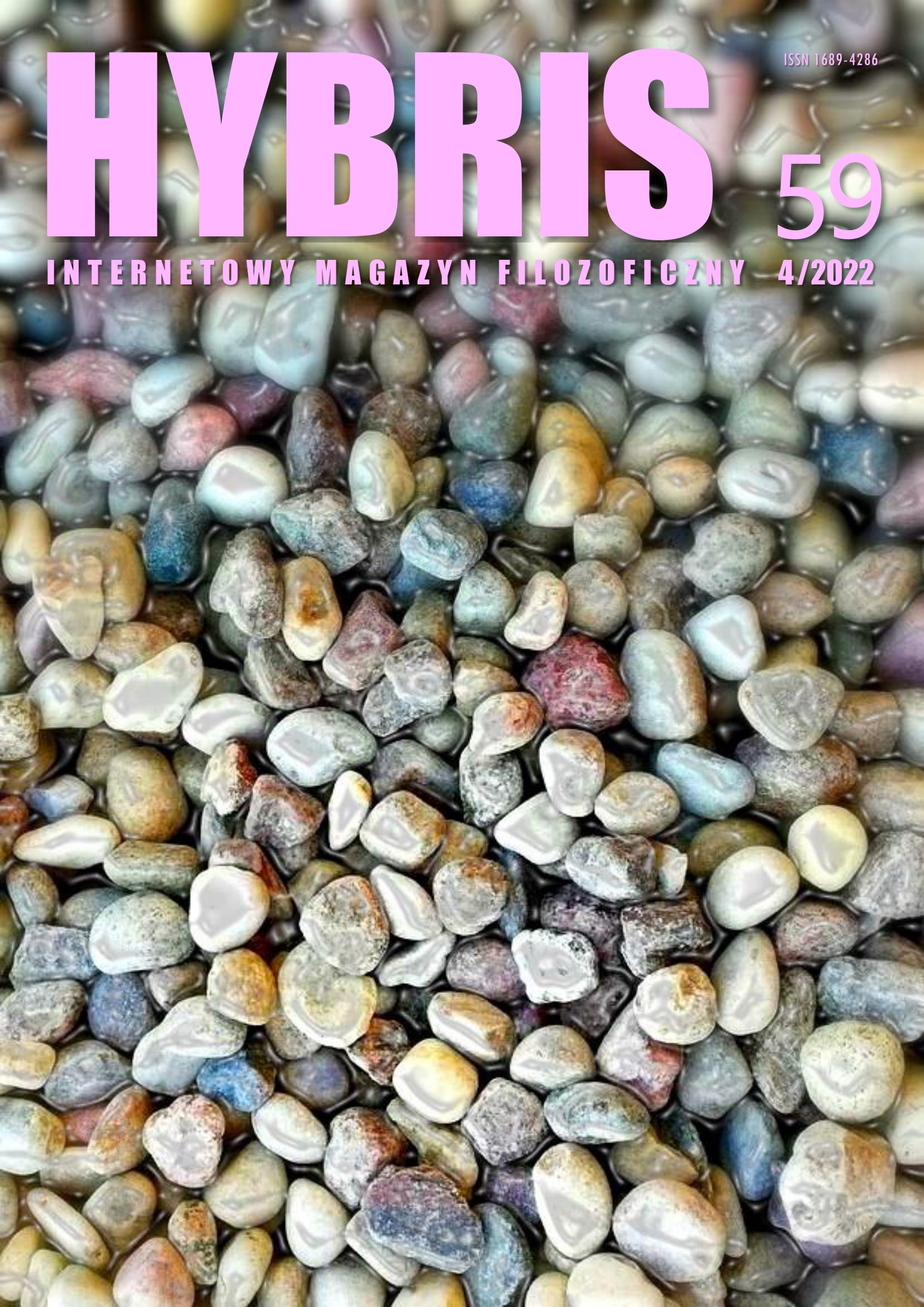The Hermeneutics of the Socinian Atheology of the Polish Brethren. Introduction of a Democratic Political Philosophy
DOI:
https://doi.org/10.18778/1689-4286.59.01Keywords:
Socinianism, mutual tolerance, atheism, theologyAbstract
The paper discusses the arguments in favor of the proposition that an atheistic concept is not just one where “God does not exist” (in a sense bequeathed on it by theologies) but also one where, despite a declarative belief in the idea of God understood in religious terms, it formulates its creed in a socio-cultural and axiological order in ways that diametrically contradict a view of God seen as the supreme level of an absolute hierarchy, embodiment of an absolute power and an exclusive competence to defining good and evil. In this understanding, atheism is an outlook, holding that the world is built non-hierarchically and there is no one absolute authority. Thus seen, the ideology of the Polish Brethren is atheistic (despite a theistic declaration).
References
Bullock A., Stallybrass O. (eds). (1979). The Fontana Dictionary of Modern Thought. London: Fontana/Collins.
View in Google Scholar
Feuerbach, L. (1959). O istocie chrześcijaństwa. Warszawa: PWN.
View in Google Scholar
Good News Bible (2004). The Bible Society/HarperCollins Publishers.
View in Google Scholar
Hegel, G. W. F. (1895). Lectures on the Philosophy of Religion, https://archive.org/details/lecturesonphilo03hegegoog (14/02/2022)
View in Google Scholar
Kołakowski, L. (2010). Herezja. Kraków: Znak.
View in Google Scholar
Majmurek, J. (red.) (2010). Bracia Polscy. Przewodnik Krytyki Politycznej, vol. XXXII .Warszawa: Wydawnictwo Krytyki Politycznej.
View in Google Scholar
Możejko, M.A. (1999). Teologia. W: Nowiejszyj filosofskij slovar. Minsk.
View in Google Scholar
Ogonowski, Z. (2009). Socinianism in the Intellectual History of Europe. Dialogue and Universalism, Vol. 19, Issue 10, 7-40. https://doi.org/10.5840/du2009191011
View in Google Scholar
DOI: https://doi.org/10.5840/du2009191011
Onfray, M. (2005). Traité d'athéologie. Physique de la métaphysique. Paris: Grasset.
View in Google Scholar
Paradowski, R. (2009). Problem normy absolutnej i dekalog społeczeństwa obywatelskiego. In: A. Chodubski, L. Kacprzak, K. Pająk (eds.), Instytucje państwa a społeczeństwo obywatelskie (19-34). Piła: Wydawnictwo Akademii Nauk Stosowanych im. Staszica.
View in Google Scholar
Paradowski, R. (2010). Ateizm, metafizyka i typy kultury. Przegląd Filozoficzno-Literacki, 2(27), 279-294.
View in Google Scholar
Paradowski, R. (2011). Biblical Definitions of God and Man in Light of Dialectical Metaphysics of Choice. Dialogue and Universalism, 21(4), 45-58. https://doi.org/10.5840/du201121443
View in Google Scholar
DOI: https://doi.org/10.5840/du201121443
Paradowski, R. (2012). Religia jako ideologia. Status religioznawstwa i problem transcendencji. Środkowoeuropejskie Studia Polityczne, 1, 5-30. https://doi.org/10.14746/ssp.2012.1.01
View in Google Scholar
DOI: https://doi.org/10.14746/ssp.2012.1.01
Paradowski, R. (2013a). Definiowanie Boga w Księdze Rodzaju i doświadczanie absolutu. Internetowy Magazyn Filozoficzny HYBRIS, 21(2), 27-50. https://doi.org/10.18778/1689-4286.21.04
View in Google Scholar
DOI: https://doi.org/10.18778/1689-4286.21.04
Paradowski, R. (2013b). Pojęcie „duchowości” i metafizyczne podstawy kultury. In: Z. Pasek, K. Skowronek, R. Tyrała (ed.), Pozareligijne wymiary duchowości (43-62). Kraków: Wydawnictwo Libron.
View in Google Scholar
Paradowski, R., Paradowska, W. (2020). Bóg jako metafora. In: M.Śliwa. E.Chodźko (ed.), Kulturowe i filozoficzne aspekty literatury i sztuki (359-369). Lublin: Wydawnictwo Naukowe TYGIEL.
View in Google Scholar
Szocik, K. (2014). Ateizm filozoficzny. Zarys historii i krytyka neotomistyczna. Kraków: Zakład Wydawniczy NOMOS.
View in Google Scholar
Szwed, A. (2011). Rozum wobec chrześcijańskiego Objawienia. Kant, Hegel, Kierkegaard. Kęty: Wydawnictwo Marek Derewiecki.
View in Google Scholar
Tazbir, J. (1973). A state without stakes. New-York: Kościuszko Foundation.
View in Google Scholar
Downloads
Published
How to Cite
Issue
Section
License

This work is licensed under a Creative Commons Attribution-NonCommercial-NoDerivatives 4.0 International License.






